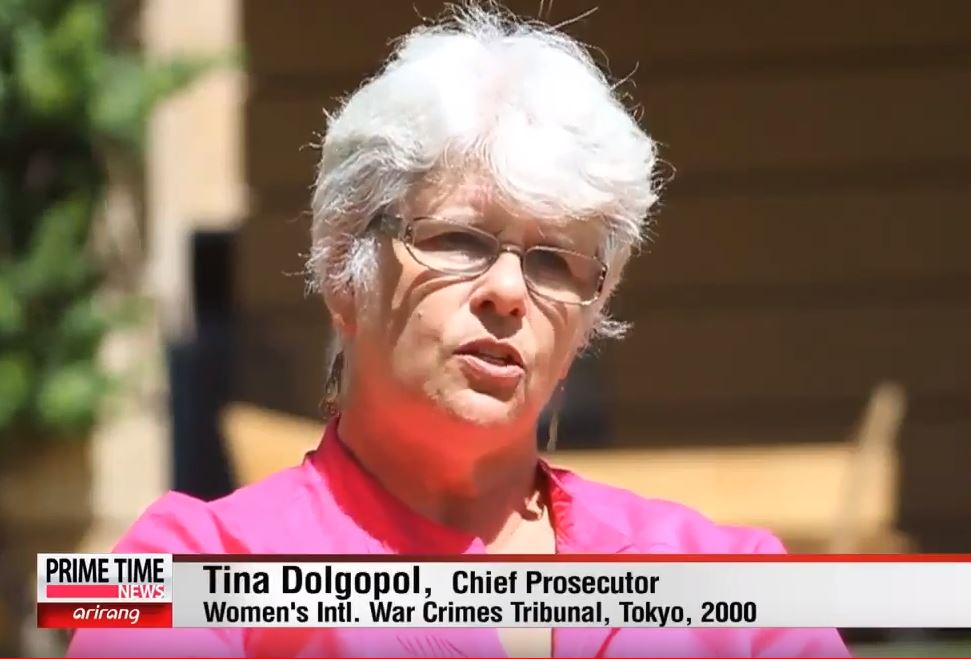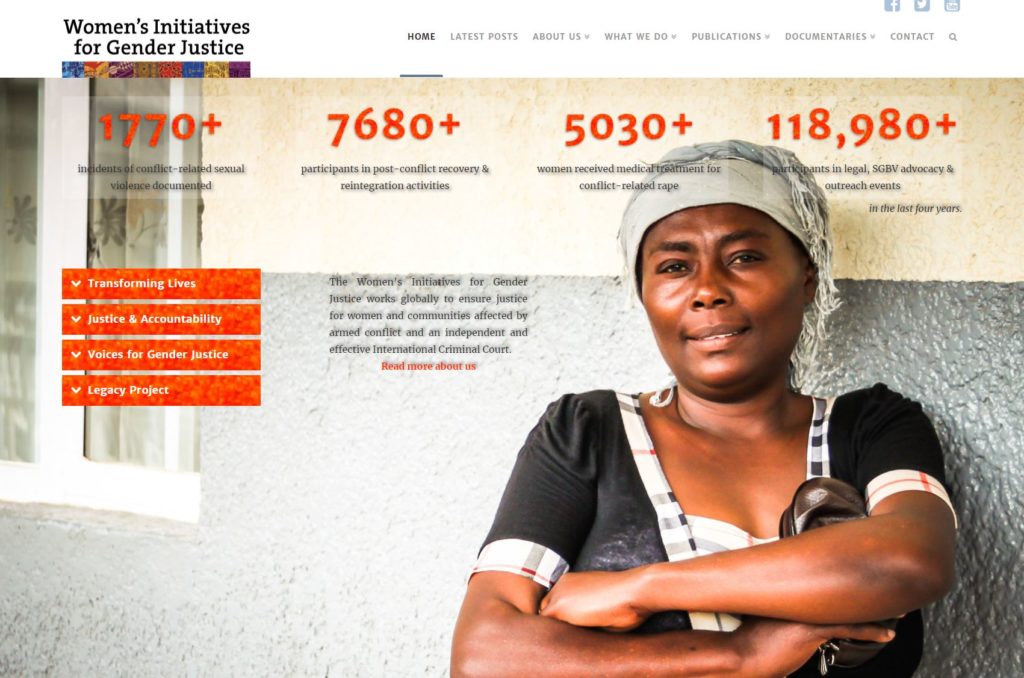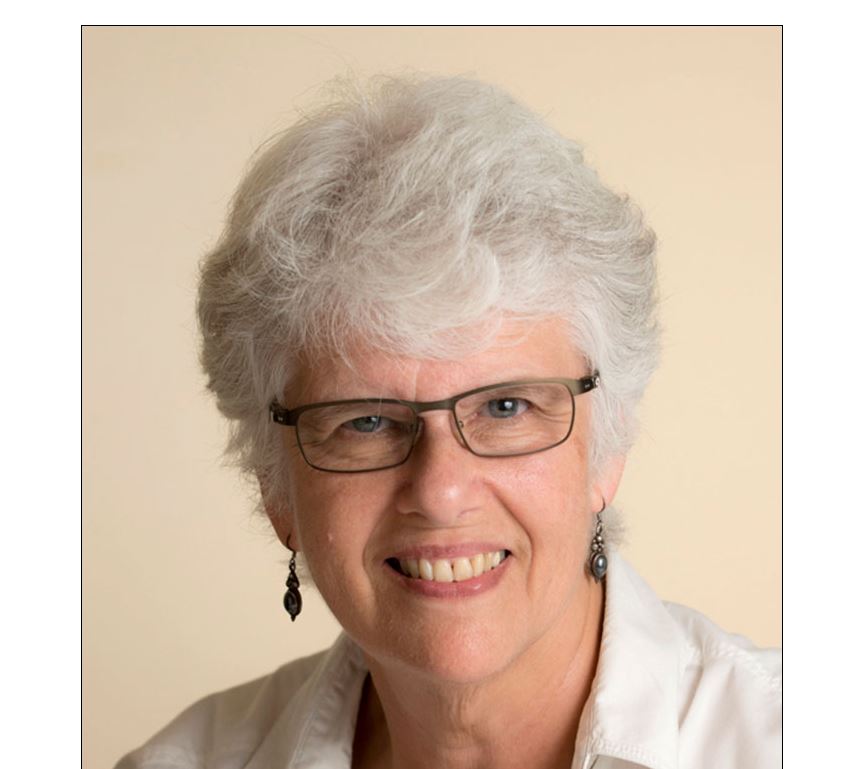
Human Rights Day takes a special meaning this year for Flinders University Associate Professor Tina Dolgopol.
This follows the legal academic’s long campaign for female victims of war being recognised as part of an elite list men and women to be honoured on the Gender Justice Legacy Wall in New York.
The Women’s Initiatives for Gender Justice Legacy Wall was launched at the United Nations in New York during the International Criminal Court (ICC) Assembly of States Parties, with the names to be incorporated into the new ICC building in The Hague, The Netherlands in mid-2018.
Two other Australian lawyers, Hilary Charlesworth and Michelle Jarvis, who worked in The Hague, and Indigenous campaigner Antoinette Braybrook were included on the Justice Legacy Wall list, along with international human rights campaigners such as Hollywood superstar Angelina Jolie and former UK Foreign Secretary William Hague, who together co-founded the Preventing Sexual Violence in Conflict Initiative.
Others inducted on to the Gender Justice Legacy Wall include:
- The mothers of the Plaza de Mayo in Argentina who insisted on knowing what happened to their children and other loved ones when more than 30,000 people were abducted and killed by the military and state security forces.
- Evelyn, Victoria, Esther, Winnie and Grace – women whose names you won’t have heard of but who are leading a quiet revolution in northern Uganda transforming their own experience and that of others who were also victims of rape and long term sexual enslavement by the Lord’s Resistance Army.
- Bertha von Suttner, author and one of the leading figures in the international peace movement in the late 19th century, a pioneering advocate against conflict in the years leading up to the First World War.
- Ben Ferencz who, along with other lawyers of the Nuremberg Tribunal, established the practice of prosecutions of international crimes and who remains one of the clearest global voices on justice issues advocating for a kinder and more inclusive humanity.
- Coalition of Violence Against Women in Kenya and Sara Hossain in Bangladesh who pursue domestic prosecutions and other remedies for conflict or post-election related sexual violence as international crimes.
Brigid Inder OBE, Executive Director, Women’s Initiatives, said: “This is a historic moment for the field of international gender justice.
“While a lot remains to be done to prevent sexual and gender-based crimes, provide redress for its victims, and transform entrenched inequality between women and men, it is also important to celebrate the progress that has been made in this field and to recognise and honour those who have contributed to these developments.”
Women’s Initiatives is working with the ICC to have the Legacy Wall installed in the Court during 2018 at one of the 20th year anniversary celebrations of the adoption of the Rome Statute, the founding treaty of the ICC.
 Associate Professor Dolgopol, who taught at Flinders University for more than 20 years, was recognised for her work to promote the human rights of women affected by armed conflict including her participation in the negotiations for the Rome Statute which established the International Criminal Court.
Associate Professor Dolgopol, who taught at Flinders University for more than 20 years, was recognised for her work to promote the human rights of women affected by armed conflict including her participation in the negotiations for the Rome Statute which established the International Criminal Court.
“Many of those who are targeted during armed conflict are reluctant to speak about their experience,” says US born Associate Professor Dolgopol, who has extensively researched and published information about the ‘comfort women’ of World War II.
“From the Korean peninsula, China and Taiwan, to Malaysia, the Philippines, Indonesia, Timor, PNG and the Pacific, the then military and government of Japan systematically created ‘comfort stations’.
“They captured women from the countries they occupied, including some women from expatriate communities such as the Dutch living in Indonesia.
“One of the Dutch women who was subjected to the brutality of the comfort stations was Adelaide woman Jan Ruff O’Herne who was brave enough to speak about her experiences nationally and internationally.
“Her testimony helped to publicise the cause of the comfort women.”
Sadly violence against women has not decreased despite the overwhelming condemnation of such acts by the international community. Two recent widely reported instances are the systematic rape by Myanmar armed forces of Rohingya women trying to escape to safety and the rape and sexual enslavement of Yazidi women by ISIS.
“Armed conflict breeds acts of inhumanity and women become particular targets for acts deemed to be war crimes or crimes against humanity,” she says.
“Rape in war and rape as a means of terrorising people continues but what has changed is that individuals will be routinely prosecuted.

“The hope is that the existence of a criminal tribunal as well as the inclusion of many of these crimes in domestic law will reduce the incidence of such crimes as people come to realise they will be prosecuted.”
Associate Professor Dolgopol’s inclusion in the inaugural Gender Justice Legacy Wall acknowledges her work at the Tokyo Women’s Tribunal in 2000, which investigated the Japanese Imperial Army’s sexual enslavement of the comfort women during World War II. She was one of the co-chief prosecutors at the Tribunal.
“The passage of time does not diminish the pain of women who have suffered from violence during armed conflicts,” she says.
“Years after the horrors they endured during the Second World War, the remaining ‘comfort women’ continue to speak about the effect their experiences had on their lives.”
Prior to the commencement of the Tribunal she worked with the organising committee to develop its terms of reference and create its statute. She then provided a legal brief on issues concerning compensation for international wrongs, interviewed a number of expert witnesses and supplied documents from the Allied war records held by the Australian War Memorial archives. Many years of work preceded Associate Professor Dolgopol’s role in the tribunal.
In the early 1990s Associate Professor Dolgopol undertook an investigative mission for the International Commission of Jurists (ICJ).
During the mission she visited North and South Korea, Japan and the Philippines, and interviewed women who had been forced into the comfort stations.
The ICJ published a final report that included an extensive legal analysis in 1994. Both the initial and final reports were entitled ‘Comfort Women – an Unfinished Ordeal’.
The final report received widespread publicity and was widely quoted in UN reports on the issue and remains a major source of material for groups working on this issue.
Associate Professor Dolgopol’s work on comfort women, and the publicity that accompanied the ICJ reports contributed to the growing international pressure on Japan to offer a full and frank apology. “Although several apologies were issued, many feel they were not sufficiently frank,” she adds.
The Legacy Wall honours and celebrates many of those who, over the past 125 years, have contributed to the field of international gender justice as practitioners, advocates, judges, prosecutors, grassroots and other organisations, survivors, witnesses (by number for anonymity), academics, diplomats and others.
The names installed on the Gender Justice Legacy Wall (Women’s Initiative) are representative of the disciplines which have helped to shape this work and those selected reflect regional diversity, a variety of contributions to international gender justice, as well as noteworthy and memorable developments.
The Women’s Initiatives works globally to ensure justice for women and communities affected by armed conflict and an independent and effective International Criminal Court.
Associate Professor Dolgopol continues to publish and to supervise Flinders’ postgraduate students although she retired from undergraduate teaching in 2014.
She is on the management committee of Justice for Refugees, contributes to the work of the Circle of Friends and is a guide and volunteer at the Art Gallery of SA.
Human Rights Day on 10 December marks 69 years since the United Nations General Assembly adopted the Universal Declaration of Human Rights on December 10, 1948. With the 70th anniversary coming up in 2018, the UN has launched Stand Up 4 Human Rights, a year-long campaign to bring the ideals of the declaration closer to reality.

